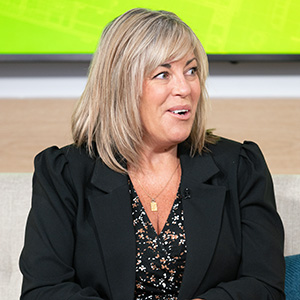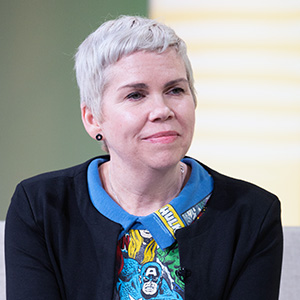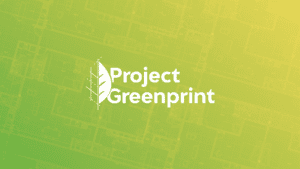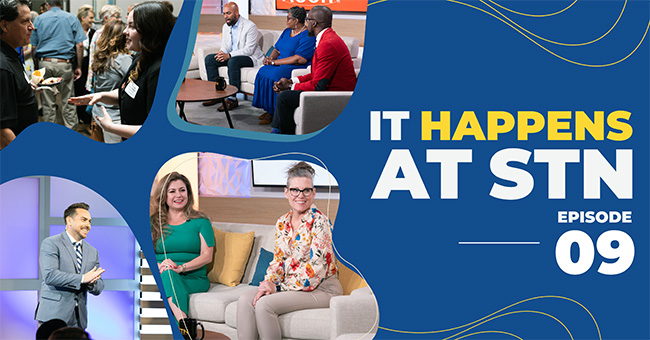The fashion industry is the second most polluted industry on the planet. Companies like Goodwill of Central and Nothern Arizona and FABRIC, a local fashion incubator in Tempe, are working to make the industry more sustainable instead of more wasteful.
In episode 9 of Project Greenprint, host Kristen Keogh talks with Angela Johnson, co-founder of FABRIC, and Beth Forsberg, Senior Vice President of Sustainability, for Goodwill of Central and Nothern Arizona. They discuss how each organization works to keep clothing out of our landfills and find unique ways to reuse unwanted clothes.
Project Greenprint is part of It Happens at STN, a local news hour dedicated to community growth and actionable solutions.
Each month, innovators share insightful commentary on the latest sustainability initiatives in the Greater Phoenix area.
Project Greenprint guests talk about the fashion industry and sustainability
Action Panelists
Action Panelists
Beth Forsberg
Senior Vice President – Goodwill Central and Northern Arizona
Angela Johnson
Co-Founder – FABRIC

Social Impact Engine
At Goodwill, we serve our community as a social impact engine in a variety of ways. We serve our external customers through our career center programs and through our adult charter high school, which is the first-of-its-kind in Arizona.
We also serve our employees with our program called My Career Matters where we show them how every job they are doing with Goodwill can translate into a lifelong career. None of these programs would be possible without all of the donations we receive and sell out our retail locations, we call it, Ending Poverty through the Power of Work.
The Power of Collaboration
When you think about what Arizona can be and how we can be at the top of the food chain when it comes to being change-makers and innovators the possibilities are endless.
One partnership that I am excited to share with everyone is with the City of Phoenix alongside the Rob and Melani Walton School of Sustainability Solutions, and Hustle Phoenix we will be embarking on a microplastic facility, which will be the first of its kind in the country.
We want to do our part to reduce and reuse all the plastic that is out there, and after speaking with Angela Johnson before the show today we will start work on creating a micro textiles facility in Arizona as our next collaborative sustainability project.

Industry in Disruption
The fashion industry is in disruption because it is the second most polluted industry on the planet.
It is everyone’s responsibility to make sure we do something about it. We wear clothes every day. I get that consumers want to keep prices low. I get it, but we have to do something to prevent this industry from polluting our planet like you would not believe and the way to do it is to rethink the industry.
Big brands have to overproduce overseas in order to keep the prices low for consumers. The answer is not reshoring like we have been doing for years, the solution is new-shoring in the fashion industry.
We have to start doing it smarter. Using technology to make it more efficient, enabling apparel entrepreneurs to be able to make small batches of niche products in a local micro-manufacturing facility so they can keep their fibers local and allow circularity to be created amongst local designers.
Our greater vision at FABRIC is to put Arizona on the map and lead the nation when it comes to ‘New-Shoring’ the fashion industry.
Creating FABRIC Through Collaboration
Everything we do at FABRIC is because of connections and because of people coming together. We could not have done anything at FABRIC without collaboration.
It took a village. There were hundreds of apparel entrepreneurs that needed resources. We all got together to create the vision for FABRIC. Then, to be able to open our space we needed a partnership with The City of Tempe to see our vision and allow us to use a city building to create a space of our own.
Today, all of the collaborations that we have made through the years have allowed us to be in a position to create the future micro textile partnership we have created with Goodwill.
Angela Johnson Designs
I began designing dresses and gowns after I relocated from Los Angeles to Phoenix in 2002. At that time there were no resources in the area to manufacture clothing so I got a bit creative.
I started to go to all the different Goodwill locations in the area and buy up all of the t-shirts they had in the stores. From there I started to create all sorts of different dresses and ball gowns out of the t-shirts I found at Goodwill and I have been doing it for the past fifteen years or so.




